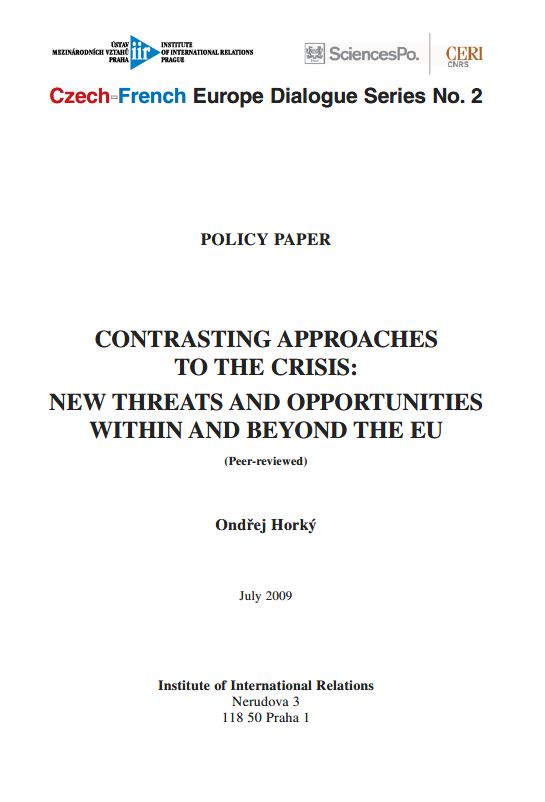Contrasting Approaches to the Crisis: New Threats and Opportunities within and beyond the EU
Contrasting Approaches to the Crisis: New Threats and Opportunities within and beyond the EU
Author(s): Ondřej Horký
Subject(s): Supranational / Global Economy, International relations/trade, Economic development, Transformation Period (1990 - 2010), Conference Report, EU-Approach / EU-Accession / EU-Development, Financial Markets
Published by: Ústav mezinárodních vztahů
Keywords: EU; global financial and economic crisis; market; democratic administration; international monetary system;
Summary/Abstract: In early July, the second conference of the Czech-French Europe Dialogue series took place in Prague. Six Czech and French economists and political scientists met to discuss the impacts of and the responses to the ongoing global financial and economic crisis. The participants highlighted the following points: • Despite the global effects of the crisis, governments’ responses originated at the national level and did not lead to institutional changes at the international level. While the financial sector requires selective regulation, there is not enough will to strengthen the governance of the global economy. • The crisis has affected EU member states in different ways. Moreover, its perception and the measures undertaken vary among nations according to their historical experience. The neoliberal vogue in the mainstream discourse has ended and the continental economic models were rehabilitated. The crisis gives us an opportunity to find a European consensus on the balance between the importance of market incentives and institutional regulation. • National measures to mitigate the adverse social impacts of the crisis have suspended the Stability and Growth Pact and substantially increased the current public debt. Its repayment may take as long as two decades and it presents a major challenge for the social and intergenerational solidarity in the EU. • The declining dominance of the United States in the global economy and the new democratic administration present an opportunity to foster transatlantic relations. The EU should unite its voice to promoting necessary reforms of the international monetary system and finding new ways of financing the economic growth in order to overcome the growing imbalance between developed and emerging markets.
Series: IIR - POLICY PAPERS
- Page Count: 9
- Publication Year: 2009
- Language: English
- Content File-PDF
- Introduction

